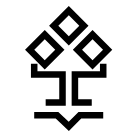Detailed introduction of Latvian Academy of Culture:
Introduction and Overview
The Latvian Academy of Culture is an important institution of higher education in Latvia, focusing on education, research and creation in the field of culture and art. It offers undergraduate, master and doctoral degree programs, covering multiple professional directions such as cultural theory, art management, performing arts, language and culture, and is committed to cultivating professionals with profound cultural heritage and innovative ability, making important contributions to the cultural development of Latvia.
History and Establishment
The Academy was established on December 29, 1990. Its creation originated from the idea of establishing a new cultural university proposed at the Latvian Cultural Forum in 1990. At that time, Latvia was in the period of national reconstruction, and many cultural organizations and associations were revived. People realized that a professional cultural college was needed to cultivate talents in the field of culture and art and promote the development of cultural undertakings.
School Strength
Teaching Staff: It has an experienced and highly professional teaching staff. The teachers have profound attainments in cultural theory, artistic creation, education and teaching, and can provide students with high-quality teaching and guidance to help students deeply learn and master professional knowledge and skills.
Teaching Resources: The college is equipped with complete teaching facilities and rich learning resources, including professional art studios, rehearsal halls, libraries, multimedia classrooms, etc., which provide good conditions for students' learning and practice. The library has a large number of cultural and artistic books, periodicals, audio-visual materials, etc. to meet students' research and learning needs.
Academic Research and Creation: Actively carry out academic research and artistic creation activities, set up departments such as the College Research Center and the Creative Activity Center, and promote theoretical innovation and practical exploration in the field of culture and art. Teachers and students have achieved a series of results in cultural research, artistic performance, literary creation, etc., which has injected new vitality into the development of culture and art in Latvia.
Nature of the institution
Public institution.
Educational philosophy
Emphasis on the combination of tradition and modernity, focusing on cultivating students' contemporaneity based on tradition and experience, so that students can create cultural and artistic works with contemporary value on the basis of inheriting and carrying forward the Latvian cultural tradition. Committed to cultivating students' innovative spirit and practical ability, encouraging students to actively explore new art forms and cultural expressions, and improving students' artistic creation level and cultural research ability.
Adhering to an open and inclusive attitude, paying attention to the exchange and integration of different cultures, cultivating students' cross-cultural communication ability and international vision, so that students can better adapt to the development needs of the field of culture and art in the context of globalization.
Key laboratories and disciplines
Key disciplines: Cultural theory and history, cross-cultural communication, cultural management, drama art, audio-visual art, etc. are the key disciplines of the college. These disciplines have achieved remarkable results in teaching, scientific research and artistic practice, and have a high academic level and social influence.
Practical teaching: The college focuses on practical teaching. Through cooperation with cultural institutions, art groups, etc., it provides students with internships, practical projects and other opportunities, allowing students to improve their professional skills and problem-solving abilities in actual operations. For example, students can participate in the planning and organization of cultural activities such as museums, theaters, and film festivals to accumulate practical experience.
Department Settings
Department of Cultural Theory and History: Mainly studies the development process and theoretical system of Latvian and world culture, and cultivates students' ability to analyze and study cultural phenomena.
Department of Cross-Cultural Communication and Foreign Languages: Focuses on the communication and interaction between different cultures, offers a number of foreign language courses, and cultivates students' cross-cultural communication skills and foreign language application skills.
School of Sociology and Management of the Ministry of Culture: Focuses on the management and sociological research of cultural industries, and cultivates professionals in cultural management and cultural policy formulation.
School of Drama and Audiovisual Arts: Covers professional directions such as drama performance, directing, screenwriting, and film and television production, and cultivates students' creative and practical abilities in the fields of drama and audiovisual arts.
Ranking
The specific ranking of the college in the comprehensive ranking of international authoritative universities has not been found, but it has a certain reputation and influence in Latvia and in the field of cultural and artistic education.
Expenses
The college has not found a clear and unified tuition standard, but the tuition fees of public colleges are generally relatively affordable, and may vary depending on factors such as majors and degree levels. At the same time, the cost of living in Latvia is relatively low, and the cost of living for students in the local area is relatively low.
Campus
Campus location: The college is located in the suburb of Ratgalle in Riga, the capital of Latvia. As the cultural center of Latvia, Riga has rich cultural resources and artistic activities, providing students with a broad space for learning and practice.
Campus facilities: The campus has a unique architectural style and a beautiful environment. The college has modern teaching buildings, libraries, art studios, rehearsal halls, exhibition halls and other facilities, providing students with a good learning and creative environment. In addition, the campus is surrounded by complete supporting facilities and convenient transportation, which is convenient for students' daily life.
-

Riga Technical University
-

Riga Stradins University
-
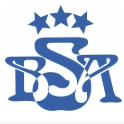
Baltic International Academy
-
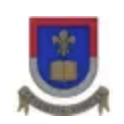
Daugavpils University
-
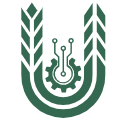
Latvia University of Life Sciences and Technologies
-

Latvian Maritime Academy
-
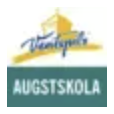
Ventspils University of Applied Sciences
-

Vidzeme University of Applied Sciences
-
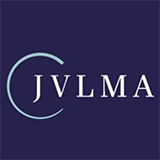
Jazepa Vitola Latvian Academy of Music
-
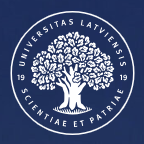
University of Latvia
-

Mesoamerican University
-

Istmo University
-

Mariano Galvez University of Guatemala
-

Regional University of Guatemala
-

Galileo University
-

Francisco Marroquín University
-

Rafael Landívar University
-

University of the Valley of Guatemala
-

University of San Carlos of Guatemala
-

Technological Institute of Tlaxcala Plateau
-

Golfo University
-

Technological University of South Sonora
-

Technological University of Huejotzingo
-

Tizimín Institute of Technology
-

Chilpancingo Institute of Technology

